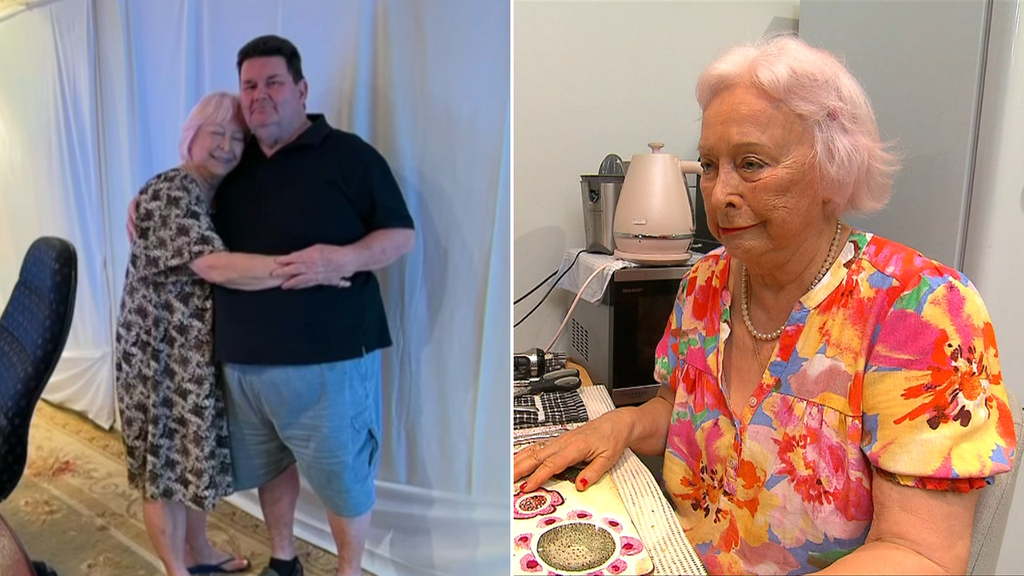
An 82-year-old Gold Coast pensioner sat alone in her home, facing the horrifying reality that everything she had worked for might soon disappear.
Carole Curtis had placed her trust—and her financial future—in the wrong hands.
Now, she was left declaring: ‘I am penniless.’
A web of deceit spanning decades
The man accused of orchestrating Curtis’s downfall was Christopher Bruce Smith, a twice-bankrupt convicted conman who had allegedly been running elaborate schemes for nearly two decades.
Consumer complaints traced Smith’s activities back to 2008, when he was reportedly raising funds through a Brisbane property scheme under the name Odyssey Consulting Services.
If true, this meant his alleged deception had spanned at least 17 years—long before Curtis became one of his many alleged victims.
Investigators revealed that Smith had allegedly siphoned off Curtis’s life savings while exploiting her through power of attorney.
He also allegedly used her name to control dozens of companies, creating a maze of corporate entities designed to conceal money trails and dodge accountability.
When traditional funding sources dried up, Smith allegedly convinced Curtis to take out a high-interest mortgage on her home.
Bank records showed more than $2 million was deposited into her account—but more than half was quickly transferred into another company linked to one of Smith’s relatives.
The sophisticated sales machine
Smith was not operating alone.
Alongside him was Gold Coast businessman Jay Erin David Capel, who had also declared bankruptcy and was seen holidaying with Smith in Hawaii.
Investigators alleged that the pair used social media influencers to promote their investment schemes, creating an illusion of success and legitimacy.
Capel was accused of selling fake investment contracts under a false ABN, telling investors their funds were being held in trust accounts when they were actually deposited into a regular savings account under his company name.
When confronted, Capel claimed he was merely a salesman who believed Smith’s promises, admitting he had been ‘stupid’ to trust him.
The use of social media influencers reflected a new wave of financial manipulation—one where image and lifestyle were used to mask deception.
For many older Australians, who may not be familiar with how easily appearances can be faked online, such tactics could be devastatingly effective.
How power of attorney becomes a weapon
Power of attorney is meant to help families manage finances when someone becomes incapacitated.
However, it can become a tool for financial abuse when: Someone pressures you to sign over power of attorney when you're still capable—They use it to benefit themselves rather than you—They refuse to provide accounting of your finances—They isolate you from family and friends who might question their actions
The devastating human cost
While Smith allegedly lived in luxury, his victims suffered ruin.
Curtis continued fighting to keep her home—despite Smith reportedly living in a luxury mansion with the lease still in her name.
Another victim, Leah Britton, claimed she lost $50,000 in what she believed was a legitimate property deal, confronting Smith with the haunting accusation: ‘You stole my money!’
For victims like Curtis, the damage went beyond financial loss.
The betrayal shattered their confidence and independence—leaving emotional scars that often lasted longer than the financial damage.
Warning signs seniors should never ignore
Experts warned that financial predators often used psychology as their weapon of choice.
They targeted the lonely, the recently widowed, or those who had just come into money through inheritance or property sales.
Red flags that signal potential financial fraud
The alleged use of fake Australian Business Numbers in Smith’s case served as a critical reminder.
Legitimate companies always shared verifiable registration details—something easily checked through the Australian Securities and Investments Commission (ASIC).
Fighting back against financial predators
Authorities urged potential victims to act fast.
If you suspected fraudulent activity, you were advised to contact your bank immediately, freeze accounts, and gather all evidence including emails, texts, and promotional material.
In 2024 alone, Australians lost over $2.7 billion to scams—many of them investment-related—and people over 65 remained the most affected group.
Where to get help if you've been scammed
Scamwatch: scamwatch.gov.au or 1300 795 995
Australian Financial Complaints Authority: 1800 931 678
Your state's Legal Aid service for free legal advice
Australian Securities and Investments Commission: 1300 300 630
Local police for criminal matters
Legal protections and recovery options
Under Australian law, financial fraud victims could seek redress through several channels.
The Australian Financial Complaints Authority investigated disputes with financial service providers, while ASIC had authority to prosecute financial crimes.
However, recovery often proved difficult once funds moved offshore or through shell companies.
Smith denied involvement in any fraudulent or unlawful conduct, but the pattern of allegations spanning nearly two decades painted a troubling picture.
Legal experts advised seniors to never hand over general powers of attorney lightly, to involve multiple family members, and to require regular reporting of financial activity.
A community responsibility
The alleged exploitation of Carole Curtis underscored how determined scammers had become in targeting older Australians.
By combining fake business networks, manipulated social media endorsements, and trust-based coercion, they had turned financial fraud into a high-tech operation.
Reporters continued to investigate the unfolding case, which stood as a sobering warning for communities everywhere.
Neighbours, family, and friends were urged to stay alert for signs of sudden financial changes or secrecy among elderly loved ones.
The tragedy of Curtis’s story lay in its cruel irony—after a lifetime of hard work, she found herself fighting simply to keep her home.
Her courage in speaking out now stood as both a warning and a call for vigilance.
What This Means For You
Carole Curtis’s heartbreaking story exposed how long-running fraud schemes could devastate even the most cautious investors. Allegedly orchestrated by Christopher Bruce Smith and Jay Erin David Capel, these scams relied on fake companies, social media deception, and emotional manipulation to build trust before stripping victims of their savings.
With Australians losing billions each year to investment scams, the warning signs have never been more urgent. Authorities continue to stress that vigilance, early action, and open conversations with loved ones are the strongest defences against financial predators—because anyone, no matter how careful, could be just one signature away from losing everything.
Stories like Carole Curtis’s remind us that financial predators are constantly finding new ways to exploit trust and access personal wealth.
In fact, experts have warned of a rising wave of investment scams targeting people’s nest eggs through increasingly sophisticated tactics.
One recent investigation shed light on how an entire generation of hardworking people became the primary targets in a nationwide fraud battle.
Read more: The $100 Million Target: Why Australian Seniors Are Prime Victims in Superannuation's New Scam War
Alleged Gold Coast conman exposed as elderly woman's life savings vanish in shocking scam — Reports on how Carole Curtis lost her life savings after trusting Christopher Bruce Smith, highlighting the alleged long-running fraud scheme.
https://7news.com.au/news/alleged-g...fe-savings-vanish-in-shocking-scam-c-20223482
Details Queensland Police Service Printed: 28/11/2018 18:05 by 4011496 — Queensland Police Service record confirming Carole Curtis trusted the wrong person with her financial future, leading to her declaring she was penniless.
https://police.qld.gov.au/sites/default/files/2019-08/RTI24431—Disclosure Log release.pdf
Christopher Smith, Bruce Review—Gold Coast, Other — Ripoff Report detailing Christopher Bruce Smith’s alleged fundraising through a Brisbane commercial property scheme as early as 2008, operating from Odyssey Consulting Services offices.
https://www.ripoffreport.com/report...ast-fraudster-christopher-smith-gold-c-330528
Have you or someone you know encountered suspicious investment offers or felt pressured to hand over financial control?







